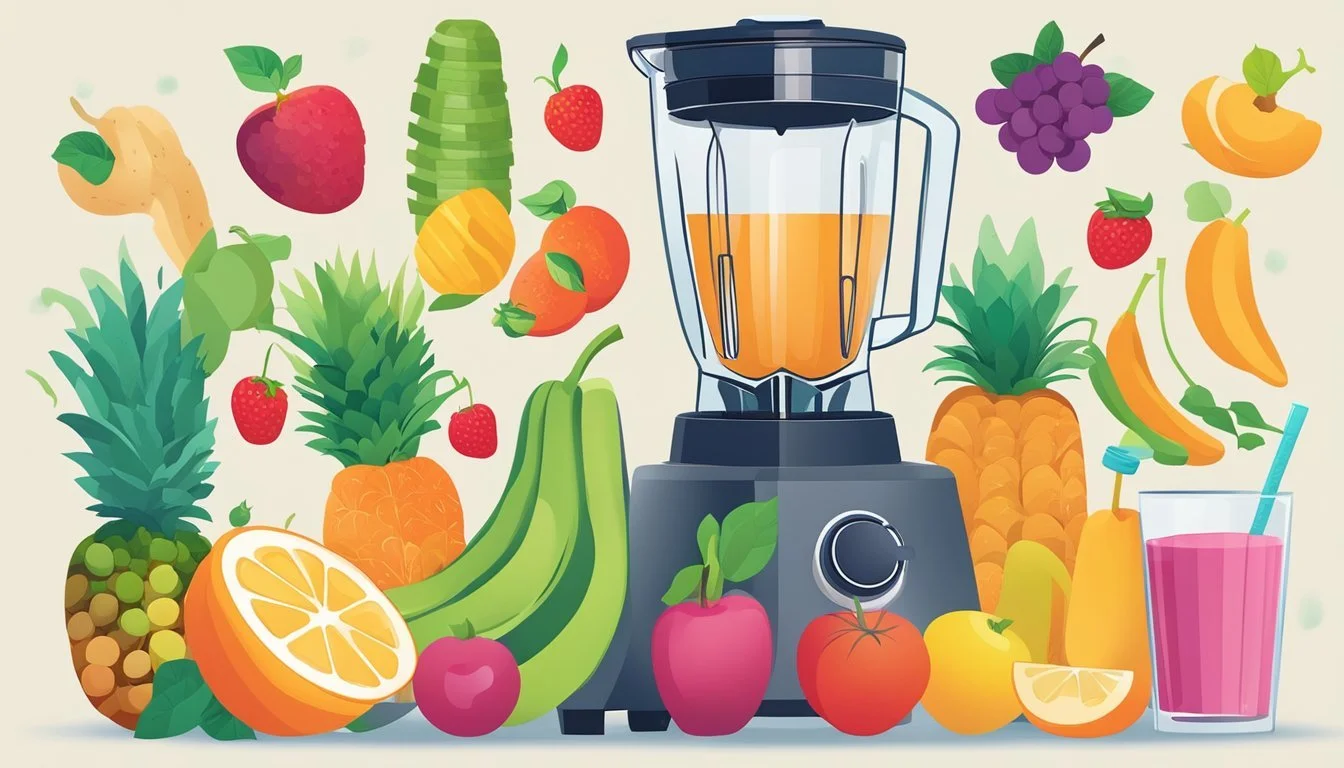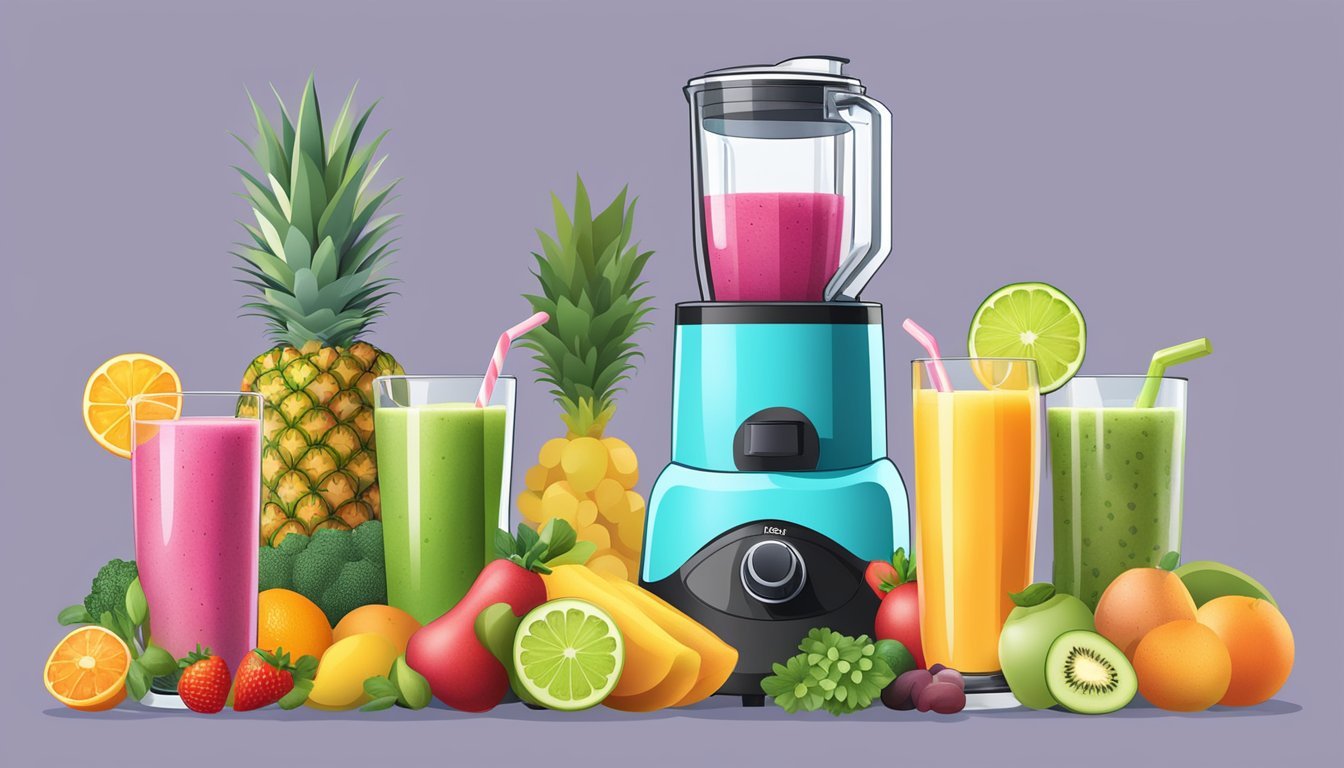Are All Smoothies Healthy?
Understanding Nutritional Value and Common Misconceptions
Smoothies have become a staple in the diets of health-conscious individuals due to their convenience and the perception that they are inherently nutritious. These blended beverages often contain a mixture of fruits, vegetables, yogurt, or milk, and may appear to be a wholesome and efficient way to consume a variety of nutrients. However, the healthfulness of a smoothie largely depends on its ingredients and proportions. It's important to recognize that not all smoothies are created equal, and some can be misleadingly high in calories and sugars.
The nutritional value of smoothies is influenced by the selection and quality of their components. Those prepared with fresh or frozen fruits, leafy greens, and without added sugars can be rich in vitamins, minerals, fiber, and other beneficial plant compounds. In such cases, they serve as an excellent source of nutrients like vitamin C, potassium, and manganese, and may support overall health as part of a balanced diet. Conversely, smoothies with high amounts of added sugars, sweetened dairy products, or other calorie-dense ingredients might contribute to excessive calorie intake and undermine weight management efforts.
To assess the healthfulness of a smoothie, it is crucial to consider the balance between nutrient-dense ingredients and those that are added for flavor or texture but may not provide significant health benefits. The presence of whole fruits and vegetables, especially with skins left on, can enhance the fiber content, benefiting gut health and providing a longer feeling of satiety. Being attentive to the ingredients list and understanding the nutritional content can help individuals make informed decisions when incorporating smoothies into their diet.
Defining Health in Smoothies
When assessing the health value of smoothies, it is essential to consider the nutritional makeup, common misconceptions, and their impact on diet and weight loss. These components determine the overall health benefits of the beverage.
Nutritional Components
Smoothies can be nutritious, providing a concentrated source of vitamins and minerals essential for bodily functions. They often contain a mix of fruits, vegetables, and other ingredients that offer an array of nutrients including:
Vitamins: such as vitamin C, folate, and vitamin B6.
Minerals: like potassium, calcium, and manganese.
Fiber: which aids in digestion.
Antioxidants: found in berries and leafy greens that help in protecting cells.
Healthy smoothies also include sources of healthy fats from avocados, nuts, or seeds, while some integrate protein in the form of yogurt or protein powders, making them more balanced in nutrients.
Common Misconceptions
There is a misconception that all smoothies are inherently healthy; however, the sugar content can be a pitfall. Commercially prepared or non-carefully made smoothies may contain:
High levels of sugars and calories, especially when made with excessive fruits, sweetened yogurt, or added sugars.
Limited fiber, if made primarily with juice instead of whole fruits and vegetables.
A lack of nutritional balance, skewing heavily towards high carbohydrates with insufficient proteins and healthy fats.
Labeling a smoothie as 'healthy' requires a scrutiny of its ingredients and their proportions.
Impact on Diet and Weight Loss
Smoothies can influence diet and weight loss in various ways:
They can serve as a meal replacement if they contain a balance of protein, healthy fats, and complex carbohydrates.
Fiber-rich ingredients help in promoting fullness, potentially aiding in weight loss by reducing overall calorie intake.
However, easily consumable high-calorie smoothies can lead to weight gain if they increase the overall caloric intake beyond what is expended.
For weight management, it is crucial to incorporate smoothies that align with an individual's dietary needs and goals while paying close attention to serving sizes and total caloric and nutrient content.
Ingredients Breakdown
The health impact of a smoothie is largely determined by its components. Understanding the nutritional value and potential drawbacks of each ingredient category is essential for tailoring the smoothie to individual health goals.
Fruits and Vegetables
Fruits like mangoes, bananas, and apples provide essential vitamins and natural sweetness to smoothies. Berries are packed with antioxidants, and leafy greens such as spinach and kale are rich in fiber and iron. Cucumbers add hydration without many calories, and avocados lend creaminess along with healthy fats.
Liquids and Sweeteners
Choosing the right liquids can alter the nutritional content of a smoothie. Water is a calorie-free hydrator, while almond milk and coconut water offer flavor with fewer calories than dairy milk. Sweeteners should be used sparingly; options like honey and maple syrup add natural sweetness, but also additional sugars. Stevia is a plant-based, zero-calorie alternative.
Proteins and Supplements
To enhance their nutritional value, smoothies often include proteins such as yogurt, nuts, and nut butters. Protein powders and seeds like chia or hemp are also popular for boosting protein intake and adding fiber.
Natural vs. Added Sugars
Natural sugars come from the fruits themselves like bananas and mangos. In contrast, added sugars can sneak in through sweetened yogurts, flavored milk, or direct sweeteners. It's essential to differentiate between these to manage the smoothie's overall sugar content.
Health Benefits of Smoothies
Smoothies, when prepared with the right ingredients, act as a nutritious beverage that can aid in achieving daily dietary goals and supporting disease prevention.
Contribution to Daily Nutrient Intake
Smoothies often include a variety of fruits and vegetables, which are excellent sources of essential vitamins and minerals. They can contribute significantly to the intake of fiber, which is important for digestive health. Ingredients such as berries and citrus fruits provide a rich dose of Vitamin C, essential for immune function and skin health, while leafy greens can be high in Vitamin A, which is vital for vision and immune support. Additionally, incorporating nuts or seeds can offer healthy fats that are essential for brain health and hormone production.
Fiber: Increased intake through fruits and vegetables.
Vitamins: A good source of Vitamin C and Vitamin A.
Minerals: Various minerals are obtained by including a mix of produce.
Healthy Fats: Avocado or seeds like chia or flaxseed contribute beneficial fats.
Prevention and Management of Diseases
Regular consumption of nutrient-rich smoothies may play a supportive role in preventing and managing various chronic diseases. Antioxidants found in fruits and vegetables, such as flavonoids and carotenoids, help reduce inflammation and oxidative stress, which are contributors to a spectrum of health issues including heart disease and certain cancers. For individuals with diabetes, smoothies with a balanced amount of nutrients and low on added sugars can help regulate blood sugar levels. It's important to carefully choose smoothie ingredients to avoid excessive sugar intake which can have the opposite effect on health.
Antioxidants: Protect against oxidative stress and may reduce the risk of chronic diseases.
Heart Disease: Ingredients rich in fiber and healthy fats may improve heart health.
Diabetes: Smoothies made without added sugars can help manage blood sugar levels.
Risks and Considerations
While smoothies can be nutritious, they come with certain risks and considerations related to their nutritional content and compatibility with individual dietary needs.
Caloric and Sugar Content
Smoothies often contain fruits and can have added sweeteners, which increases their caloric and sugar content. A blend rich in fruits but lacking in balance can lead to excess sugar intake, spiking blood sugar levels. Smoothies with added sugars further exacerbate this issue, impacting diet and weight loss goals negatively.
Portion Control
Portion control can be challenging with smoothies as they are generally considered a single serving despite potentially containing the calorie equivalent of multiple servings of fruit and other ingredients. This can deceive individuals into consuming more calories than intended, complicating weight management efforts.
Food Allergies and Intolerances
Individual ingredients in smoothies might trigger food allergies or intolerances. Those with nut allergies must be cautious of smoothies that include nuts or nut butters. Similarly, smoothies with dairy can cause issues for individuals with lactose intolerance. It is important for consumers to ensure that the contents of their smoothie align with their dietary restrictions.
Preparing Healthy Smoothies
Creating a healthy smoothie requires careful selection of ingredients and an understanding of how to balance them for both nutrition and taste.
Selecting the Right Ingredients
The foundation of a healthy smoothie is built on whole foods. Fresh or frozen fruits such as berries, bananas, and mangoes offer natural sweetness and essential nutrients. Incorporating greens and veggies like spinach, kale, and avocado can boost the nutritional profile. One should also consider adding oats, chia seeds, or flaxseeds for fiber and omega-3 fatty acids. To enhance flavor without adding excess sugar, one can use spices like cinnamon, turmeric, or cacao.
Fruits: Strawberries, Blueberries, Bananas (fresh or frozen)
Vegetables: Spinach, Kale, Avocado
Proteins: Natural almond butter or peanut butter, protein powder
Fiber: Oats, chia seeds, flaxseeds
Flavor Enhancers: Cinnamon, turmeric, ginger, cacao
Liquids: Water, almond milk, coconut milk
The Role of a Balanced Recipe
A balanced smoothie recipe ensures one gets a variety of nutrients without overloading on calories. It’s important to measure ingredients rather than adding them haphazardly. A good rule of thumb is to have a blend of carbohydrates, protein, and healthy fats. For example, combine fruits with a scoop of protein powder and a tablespoon of seeds or nut butter. The right proportions will aid in satiety and energy levels throughout the day. Using a blender is essential for mixing these elements thoroughly into a smooth consistency.
Carbohydrates: from fruits and oats
Proteins: from protein powders or nut butters
Healthy fats: from seeds and avocados
Liquids: measured to achieve desired thickness
Tips for Making a Smoothie a Healthy Choice
Crafting a smoothie that is truly health-promoting involves careful selection of ingredients and understanding how to accommodate various dietary needs and preferences.
Alternative Ingredients for Common Allergens
For individuals with lactose intolerance or dairy allergies, substituting almond or soy milk is an excellent dairy-free option that maintains a creamy texture. For a nutrient-rich, protein-packed addition, silken tofu can serve as a hypoallergenic alternative to yogurts and milks. Utilizing these substitutes not only caters to those with allergies but also to those following paleo, vegan, and dairy-free diets.
Almond milk: Rich in vitamin E, low in calories
Soy milk: High in protein, supports muscle health
Silken tofu: Smooth texture, aids in digestion
Customizing Smoothies for Nutritional Needs
Tailoring smoothies to specific nutritional requirements can boost performance, energy, and overall health. For optimal digestion and to meet gluten-free demands, ingredients like pulverized oats can add fiber without gluten. Enhancing smoothies with plant-based protein powders supports muscle recovery, making it an ideal choice for athletes. Incorporating a variety of nuts and seeds can provide sustained energy and essential fatty acids for brain health.
Plant-based proteins: Hemp, pea, or rice protein
Nuts and seeds: Flaxseed, chia, or pumpkin seeds (rich in Omega-3s)
By integrating these alternative ingredients and targeting specific nutritional needs, one can craft a smoothie that supports health while respecting individual dietary restrictions and preferences.




